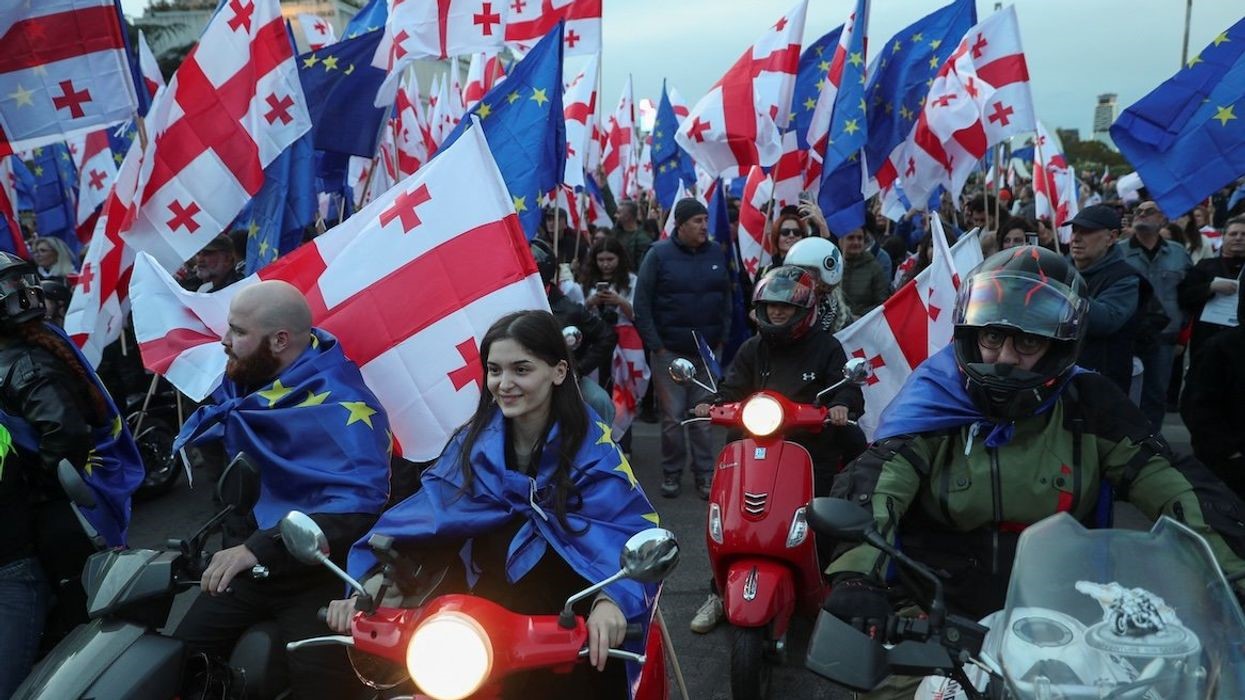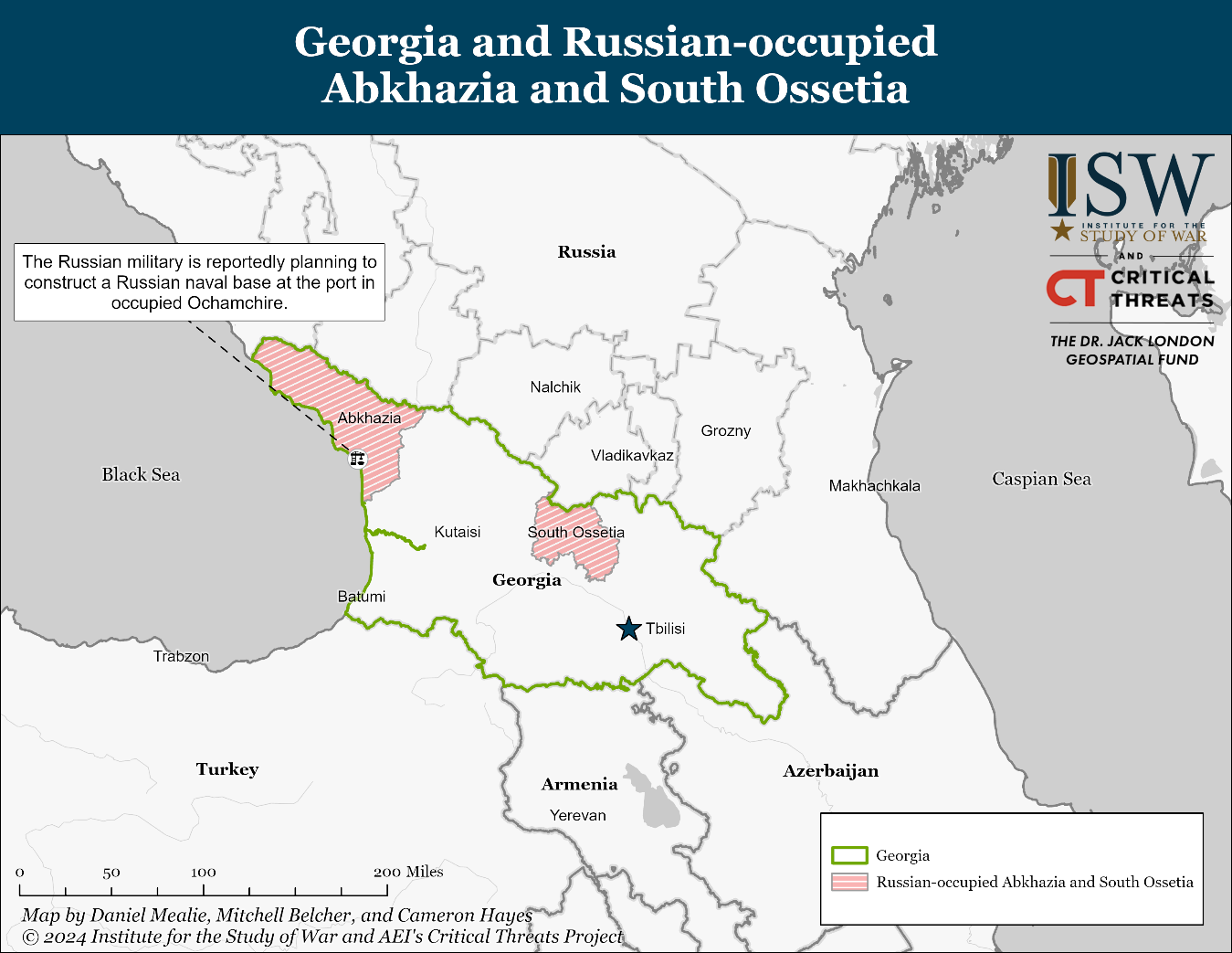By Vera Rodriguez,
This month was especially contested in the EU’s neighborhood. Two states from the region, Moldova and Georgia, had crucial elections to elect their representatives and determine their geopolitical orientation. In a previous article, I wrote about Moldova’s electoral events as a tug of two worlds. Today, I return with the story of Georgia, whose parliamentary elections were labeled by the opposition and the ruling powers as the most important in the country’s history. The other parties, the president, and other international organizations questioned the validity of the results. As the Georgian Dream (GD) achieved the majority, intimidation and violence were reported on election day.
Georgia lies in the South Caucasus, at the intersection of Eastern Europe and Western Asia. Russia borders it to the north, the Black Sea to the west, Armenia to the south, and Turkey and Azerbaijan to the southwest and east, respectively. Due to its geographical nature, the country is often seen as not even being in Europe. However, this is not how its citizens view it. Trapped in limbo like other post-soviet EU neighbors, its citizens take out EU flags when going to the streets against their government. The 26th October elections were seen as another “referendum” on the state’s internal and geopolitical future.
In 12 years of governance, Georgian Dream has increased Tbilisi’s authoritarian turn and pro-Kremlin policies. The government has undertaken several worrying measures, such as pressure on the media, pervasive corruption, and controversial legislation like the anti-LGBTQ law or the Foreign Agents Bill. Moreover, the governing party promised to ban the “collective National Movement” –referring to all pro-Western opposition groups– if they secured a constitutional majority. These statements and reforms point to a worrying future for the country domestically.

An external spillover effect complements Georgia’s internal situation. The country’s Rose Revolution (2003) sparked its pro-Western trajectory, veering the country towards the EU and NATO. For instance, Tbilisi enhanced its relationship with the EU in 2014 after signing an Association Agreement, including the Deep and Comprehensive Free Trade Area Agreement (DCFTA). Later, the country applied for candidate status in March 2022 (the anteroom to the Union’s accession). Surprisingly, the EU granted it in December 2023. Although this is excellent news, official EU sources have warned that the domestic political evolution complicates the countries’ European future. Thus, GD’s stay in power could permanently freeze the country’s process towards the West. In addition to this, Georgia’s external allies could aggravate this trend. Prime Minister Irakli Kobakhidze stated, “Europe was always a natural choice for Georgia and Georgians”. However, other prominent party figures have implied otherwise; Billionaire Bidzina Ivanishvili, the GD’s founder suspected of making his fortune in Russia, highlighted the need to avoid confrontation with Russia, even if relations with the EU would suffer. In its election campaign, Georgian Dream promised the country would join the bloc, but “on its own terms”. Furthermore, the government has not aligned with EU sanctions packages against Russia and Belarus.

Finally, there is a security dimension that merges internal and external affairs. Moscow’s looming military presence after the Russian invasion of two Georgian regions in 2008, Abkhazia and South Ossetia, further complicates the picture. The GD’s derailing of the Euro-Atlantic trajectory also means weakening its military capabilities. Therefore, the current situation could mean giving in to Russia’s waning presence.
Thus, these elections were crucial for Tbilisi’s geopolitical allies, as well as for the country’s security and democratic future. The voters supported the Georgian Dream party, and the country’s electoral commission recognized them initially. Yet internal and external organizations denounced bribery, disinformation campaigns, intimidation, and Russian intromission. The International Society for Fair Elections and Democracy (ISFED) reports that “given the combination of (electoral) violations, the results cannot reflect the will of the voters”.
The opposition parties have urged people to go into the streets to denounce the 26 October election as illegitimate. The protesters waved Georgian and European Union flags, demanding a new parliamentary election under international supervision and an investigation of the former ones. The country’s president, Salome Zourabichvili, said that Georgia had fallen victim to pressure from Moscow against joining the EU. In the meantime, Viktor Orbán’s warm congratulations on Georgian Dream’s victory reverberated strongly across a relatively silent EU. Ursula von der Leyen wrote on X (formerly Twitter), “The situation following the elections remains concerning”. A report on the state’s EU accession delivered a few days after declared Georgia “has gone backward”.
The suspected interference in Moldova and the events in Georgia show that Russia’s foreign policy toward its neighbors aims to isolate its perceived “area of influence” in engaging with the West. As Europe is going through a (perpetual) crisis itself, with the full-scale war on Ukraine, the rise of the far right, and Trump’s reelection, the spotlight remains in Tbilisi. The question now lies in what the opposition parties will do and, equally important, how much the EU and NATO are willing to do to support Georgia’s European and democratic identity.
References
- As Georgians Protest Election Results, What Next? Carnegie Politika. Available here
- Is Georgia Headed for Another Revolution? Carnegie Politika. Available here
- Georgia: call to rescind new anti-LGBTIQ+ law. UNHR. Available here
- Summary Statement on Georgia’s Parliamentary Election on October 26, 2024. ISFED. Available here
- Georgian opposition stages new protest over election result. Reuters. Available here
- Georgia’s EU accession halted as country ‘has gone backwards’. POLITICO. Available here
- ‘Georgia is now governed by Russia’: how the dream of freedom unravelled. The Guardian. Available here
- Thousands of Georgian opposition supporters rally again over ‘rigged’ election results. Euronews. Available here
- Russia or the West: The Stakes in Georgia’s Election. ISW. Available here




